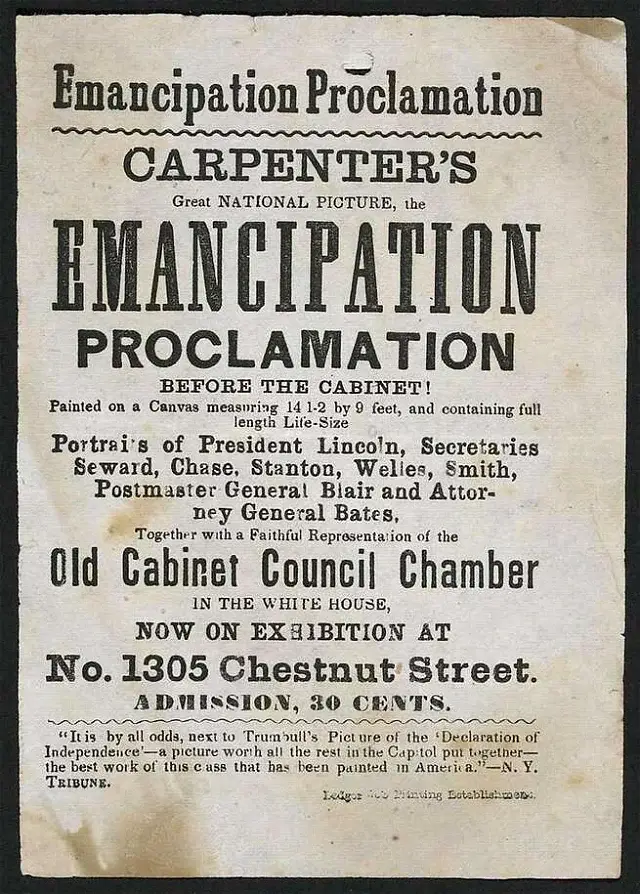Emancipation Proclamation: A Landmark in American History
The Emancipation Proclamation, issued by Abraham Lincoln on January 1, 1863, stands as a pivotal moment in United States history. This presidential decree declared “that all persons held as slaves” within the rebellious Confederate states “are, and henceforward shall be free.” This document marked a significant shift in the American Civil War, extending the Union’s moral cause beyond mere preservation of the nation.

Understanding Its Historical Significance
The proclamation, detailed in its full text, aimed to redefine the conflict’s purpose by making abolition a central goal. It not only altered the legal status of over 3.5 million enslaved African Americans but also enabled their enlistment into the Union Army, contributing significantly to the war effort.
Impact on American Society
The Emancipation Proclamation played a crucial role in shaping United States history by advancing the cause of freedom and justice. Its issuance signaled a turning point, paving the way for the eventual abolition of slavery through the Thirteenth Amendment in 1865.
Why Did Lincoln Issue the Proclamation?
Before the Civil War, Lincoln’s primary goal was to preserve the Union. However, as the war progressed, he recognized the strategic and moral imperative of emancipation. The preliminary proclamation, issued after the Battle of Antietam, set the stage for the final decree on January 1, 1863.
The Strategic Objectives
The proclamation not only aimed at weakening the Confederacy’s economic backbone but also garnered international support for the Union cause. By tying the Union’s war efforts to the abolition of slavery, Lincoln broadened the conflict’s purpose.
Aftermath and Legacy
While the Emancipation Proclamation did not immediately free all slaves, it set in motion a series of events that led to nationwide emancipation and reshaped American society. Its enduring legacy is felt in the ongoing fight for civil rights and equality.
FAQ
What was the purpose of the Emancipation Proclamation?
The Emancipation Proclamation aimed to abolish slavery in the Confederate states and strengthen the Union’s moral cause during the Civil War.
How did the Emancipation Proclamation impact African Americans?
It legally freed over 3.5 million enslaved African Americans and allowed them to enlist in the Union Army, contributing significantly to the Union’s war effort.
What were the long-term effects of the Emancipation Proclamation?
Beyond its immediate impact, the proclamation paved the way for the Thirteenth Amendment and laid the foundation for civil rights movements in the United States.
Discover more about the transformative impact of the Emancipation Proclamation and its lasting legacy in American history. Celebrate its anniversary and reflect on its significance in the ongoing pursuit of equality and justice.
When is Emancipation Proclamation 2025?
in calendar 2025 , the Emancipation Proclamation Anniversary will be on Wednesday january 01 2025.


